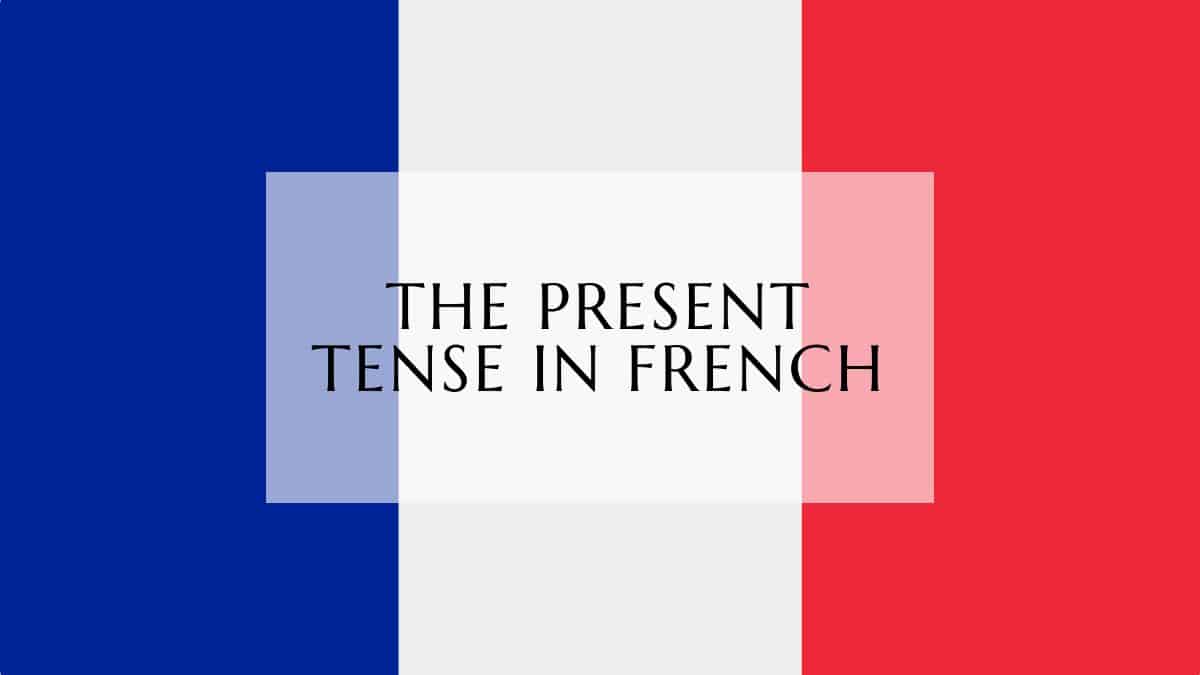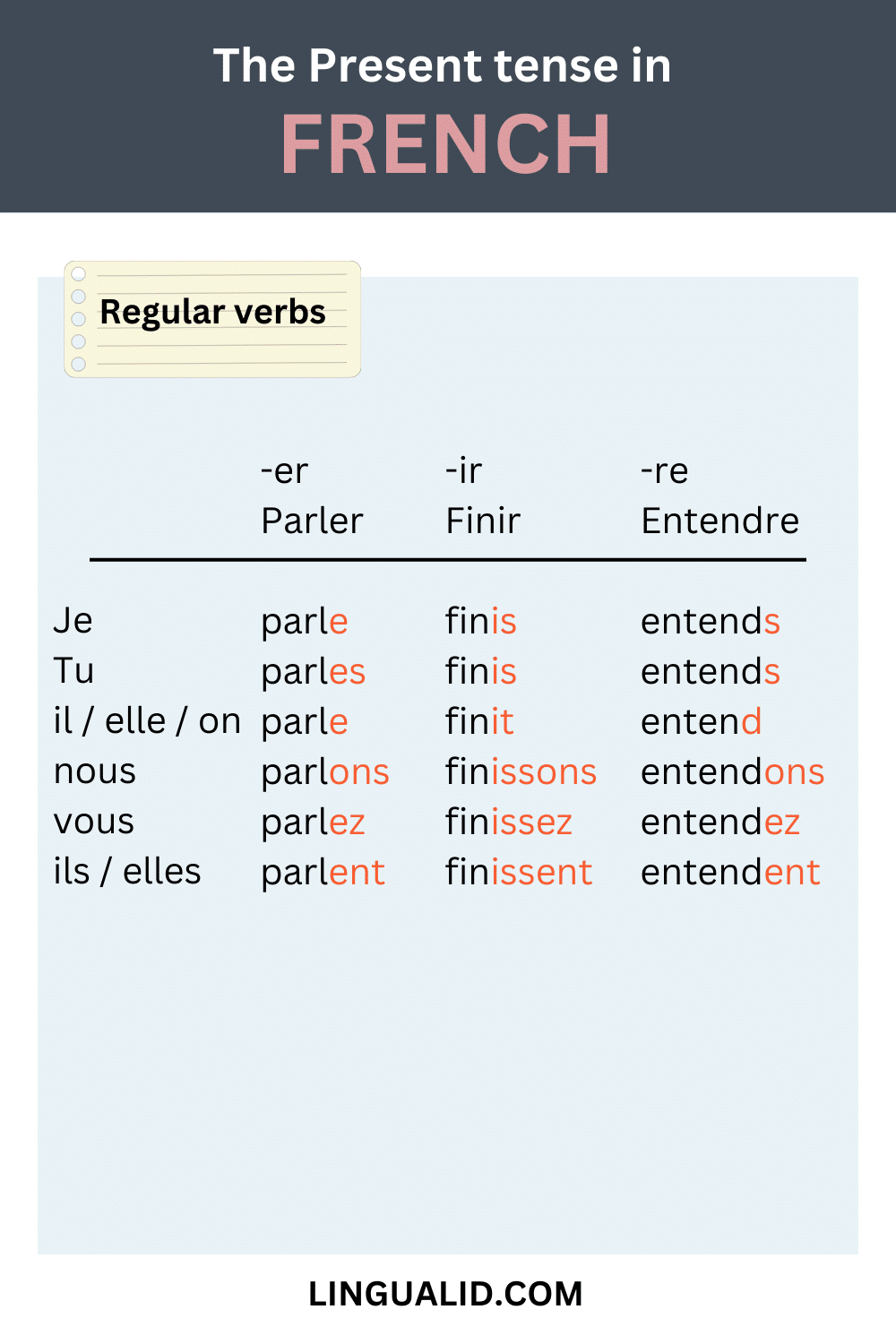The present tense in French is pretty straightforward as there is a simple form to apply to verbs to get the conjugation right, but bear in mind that in French there are three groups of regular verbs: -ER, -IR, and -RE which we will explain and give some examples.

Present Tense In French
Verbs in French have three endings: -er, -ir, -re, for regular verbs, the stem doesn’t change and we conjugate according to their endings, let’s start with verbs that end with -er.
Verbs that end with -er
| Je | -e |
| Tu | -es |
| il / elle / on | -e |
| nous | -ons |
| vous | -ez |
| ils / elles | -ent |
Example: manger (to eat)
| Je | mange |
| Tu | manges |
| il / elle / on | mange |
| nous | mangeons |
| vous | mangez |
| ils / elles | mangent |
Note: for nous, we added e to maintain the pronunciation.
Example: parler (to speak)
| Je | parle |
| Tu | parles |
| il / elle / on | parle |
| nous | parlons |
| vous | parlez |
| ils / elles | parlent |
Note: you can practice what you’ve learned here, and learn how to pronounce each of the words in our Memrise course here, don’t know how to use the platform or sign up? we’ve got you covered in this easy-to-follow tutorial here.
Verbs that end with -ir
| Je | -is |
| Tu | -is |
| il / elle / on | -it |
| nous | -issons |
| vous | -issez |
| ils / elles | -issent |
Example: finir (to finish)
| Je | finis |
| Tu | finis |
| il / elle / on | finit |
| nous | finissons |
| vous | finissez |
| ils / elles | finissent |
Example: choisir (to choose)
| Je | choisis |
| Tu | choisis |
| il / elle / on | choisit |
| nous | choisissons |
| vous | choisissez |
| ils / elles | choisissent |
Verbs that end with -re
| Je | -s |
| Tu | -s |
| il / elle / on | -d |
| nous | -ons |
| vous | -ez |
| ils / elles | -ent |
Example: répondre (to answer)
| Je | réponds |
| Tu | réponds |
| il / elle / on | répond |
| nous | répondons |
| vous | répondez |
| ils / elles | répondent |
Example: entendre (to hear)
| Je | entends |
| Tu | entends |
| il / elle / on | entend |
| nous | entendons |
| vous | entendez |
| ils / elles | entendent |
Note:
for all verbs that end with –er, the form for je, tu, il, elle, on, ils and elles are pronounced the same.
For all verbs that end with –ir and –re, the forms for je, tu, il, elle and on are pronounced the same.

Some irregular Verbs
Example: faire (to do)
| Je | fais |
| Tu | fais |
| il / elle / on | fait |
| nous | faisons |
| vous | faites |
| ils / elles | font |
For je, tu, il, elle, and on the verb is pronounced the same
Example: aller (to go)
| Je | vais |
| Tu | vas |
| il / elle / on | va |
| nous | allons |
| vous | allez |
| ils / elles | vont |
Example: prendre (take)
| Je | prends |
| Tu | prends |
| il / elle / on | prend |
| nous | prenons |
| vous | prenez |
| ils / elles | prennent |
For je, tu, il, elle, and on the verb is pronounced the same
Happy learning
